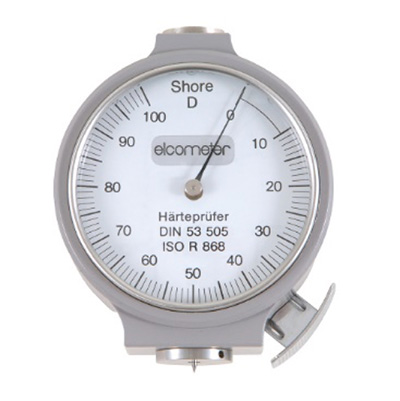Your Product is How Much Harder? Polyaspartic vs. Epoxy Hardness
Polyaspartic vs. Epoxy Hardness
As we all know by now the resinous flooring market seems to be changing daily. The biggest of the big keep buying up smaller manufacturers, raw material shortages are still in play, and of course, freight has gone out of sight.
The good news from Thermal-Chem’s point of view is, that it is better today than this time last year.
One of the biggest misconceptions we hear frequently is “How much harder is your polyaspartic than your epoxy?” Apparently, there are some new “bathtub” blender contractors that are making outrageous claims that their polyaspartic is 4 times, 25 times harder than epoxy. That just isn’t and can’t be true.
 Here’s why. In 1915 Professor Albert Shore invented hardness meters. There were different meters to measure different products. Rubberized products are measured on a Shore C scale while resinous coatings are measured on a Shore D meter.
Here’s why. In 1915 Professor Albert Shore invented hardness meters. There were different meters to measure different products. Rubberized products are measured on a Shore C scale while resinous coatings are measured on a Shore D meter.
Where this type of statement falls apart is that the maximum Shore D rating is 100! Thermal-Chem’s #1070 DecoFinish Polyaspartic and our popular #1062 DecoFinish Polyurea both have Shore D ratings between 70-75. Our epoxies all test out at 80-90 on the Shore D scale.
With this being said you would have to believe that if your polyaspartic is 4 times, 10 times harder than polyaspartic, it would have to test at 650. There is no such testing method.
There are two other tests, Compressive Strength and Tensile Strength, but again 99% of all resinous coatings crack or pull apart using these tests, again not possible to be 10 times harder than epoxy.
Thermal-Chem has been around since 1976. We’ve pretty much seen some outrageous product feature claims, but this one is JUST NOT TRUE. Quite frankly our biggest concerns are contractors who are innocently making these types of claims to potential customers.
CONTRACTORS DON’T BE FOOLED BY THESE CLAIMS!
